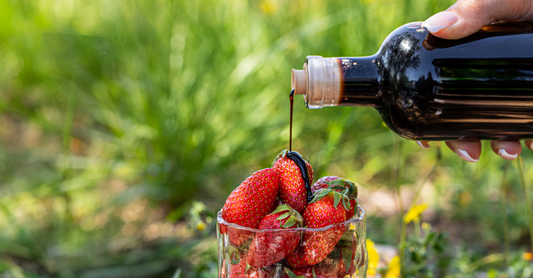Bergamot is a precious, often underestimated citrus fruit that offers a multitude of uses and benefits. Rooted in Mediterranean culture, this fruit tree produces bergamot lemons, a fruit rich in vitamin C and limonene essential oil. These lemons, although less known than their cousins, are a treasure of citriculture, and are highly sought after on organic markets for their unique flavor and properties.
What is bergamot?
Bergamot, also known as lemon bergamot , is a fruit of Mediterranean origin that is the cross between a lime and a bitter orange. It is particularly appreciated for its bark rich in essential oils and its fragrant zest. Bergamot juice is often used in baking, cooking and confectionery, while its zest is used to flavor a variety of recipes, from marmalade to tarts. Additionally, its ability to purify and perfume makes it a key ingredient in perfumery and aromatherapy. Additionally, its production is environmentally friendly, as the tree is hardy and does not need a lot of water to grow, which contributes to the popularity of bergamot in organic gardening.
Culinary use of bergamot lemons
Bergamot lemons are versatile citrus fruits that offer a multitude of culinary uses. Native to Calabria, these fruits are a rich source of vitamin C and other essential health-boosting nutrients. Their zest and juice are used to add a tangy flavor and refreshing scent to a variety of recipes. Thanks to their distinctive aroma, bergamot lemons are highly appreciated in gastronomy for their ability to enhance the taste of dishes. They are also used to prepare refreshing drinks like lemonade and various cocktails. Bergamot lemons can be preserved in a variety of ways, including making marmalade, jelly, compote, or jam.
Use of bergamot in pastry and confectionery
In baking, bergamot lemons are an ingredient of choice for preparing delicious pies, cakes and biscuits. Bergamot juice and zest are commonly used to flavor these sweet treats. The zest can be easily removed with a zester, then added to preparations to give a tangy and refreshing note. In confectionery, bergamot peel is often candied and used to decorate or flavor candies and chocolates. Another common use of bergamot in baking and confectionery is the preparation of jellies and marmalades. Bergamot, with its unique taste, gives a distinct and savory flavor to these sweet delights.
Preparing savory dishes with bergamot
Apart from baking, bergamot lemons are also used in the preparation of savory dishes. Bergamot juice can be used to season salads, marinades, and to deglaze meats. Its zest can be added to sauces, stews and fish dishes to enhance their flavor. The leaves of the bergamot lemon tree are also used in cooking to flavor dishes. Bergamot juice can also be used to make homemade salad dressings, while its zest can be incorporated into pasta or rice dishes for a lemony taste. In short, the use of bergamot lemons in cooking is limited only by your imagination.
Use of bergamot in drinks
Bergamot lemons are precious citrus fruits, used in various fields, notably in gastronomy where they are particularly appreciated for their unique scent. Their use in drinks is common thanks to their high vitamin C content and their purifying properties. Whether in juice, infusion or in cocktails , bergamot offers a range of flavors that delight the palate.
Bergamot cocktail recipes
In mixology, the use of bergamot is very widespread. Indeed, its juice and zest bring a touch of acidity and freshness to cocktails. For example, for a revitalizing cocktail, you can squeeze the juice from a bergamot , add gin, sparkling water and sugar to taste. For a non-alcoholic cocktail, simply replace the gin with lemonade. Don't forget to use a zester to harvest the bergamot zest to accentuate their flavor in your drinks.
Preparing bergamot tea
When it comes to hot drinks, bergamot tea, especially Earl Gray tea, is very popular. The preparation of this tea involves infusing black tea leaves with bergamot essential oil. This is obtained by cold pressing the peel of the fruit, a production technique typical of Mediterranean citriculture. Bergamot tea not only has a pleasant taste, but it also offers many health benefits thanks to the presence of limonene in bergamot essential oil. This compound has antioxidant and anti-inflammatory properties, and it also helps relieve symptoms of stress and anxiety. Thus, bergamot invites itself to our table, not only for its taste, but also for its health benefits.
Use of bergamot in cosmetics
Bergamot, a citrus fruit mainly grown in the Mediterranean, is a hybrid of lemon and bitter orange. Its use in cosmetics is widely recognized for its many virtues. Lemon bergamot is a rich source of vitamin C, making it an excellent antioxidant. Its essential oil, extracted from its bark, is often used in aromatherapy for its purifying and soothing effects. Additionally, limonene, a major component of bergamot essential oil, has antiseptic and anti-inflammatory properties, making it an ingredient of choice for many cosmetic products.
The benefits of bergamot for the skin
Bergamot is widely used in cosmetology due to its beneficial properties for the skin. Thanks to its high vitamin C content, it contributes to the production of collagen, an essential protein for maintaining skin elasticity. Additionally, bergamot essential oil has antibacterial and anti-inflammatory properties, making it effective for treating skin problems such as acne and rashes. Finally, bergamot has soothing and healing properties, ideal for after-sun care or insect bites.
Recipes for homemade cosmetic products based on bergamot
Bergamot lemons can be used to prepare homemade cosmetic products. For example, a simple facial mask can be concocted by mixing bergamot juice with honey. This combination provides hydrating and antioxidant care for the skin. For an exfoliating scrub, bergamot zest can be mixed with sugar and olive oil. Additionally, bergamot essential oil can be added to your usual moisturizer to benefit from its soothing and purifying benefits. Finally, bergamot leaf infusion can serve as a facial toner, helping to tighten pores and refresh the skin.
Bergamot lemons are unique citrus fruits , distinguished by their distinct scent and versatility in various applications. Coming from a lemon tree of Mediterranean origin, these fruits bring a special note to gastronomy , both in cooking and in pastry . Bergamot zest and juice are used in a variety of recipes , from confectionery and marmalade to lemonade and pies .
Outside of cooking, bergamot essential oil is appreciated in perfumery for its captivating scent, and in aromatherapy for its purifying properties. A bergamot infusion can also be used as a natural remedy for several ailments.
Growing bergamot is also a rewarding activity for amateur gardeners and citriculture professionals. Whether planting or harvesting , lemon bergamot is a rewarding fruit tree to grow.
Due to their diversity of uses, bergamot lemons are a valuable addition to any home. Whether you are a cooking enthusiast, a perfume lover, an aromatherapy enthusiast, or a gardener, lemon bergamot has its place in your daily life. Plus, consuming these citrus fruits is a great way to increase your intake of vitamin C and other essential nutrients. With their unique taste and numerous health benefits, bergamot lemons are much more than just a fruit, they are a true treasure of nature.







 lucangeli.it
lucangeli.it